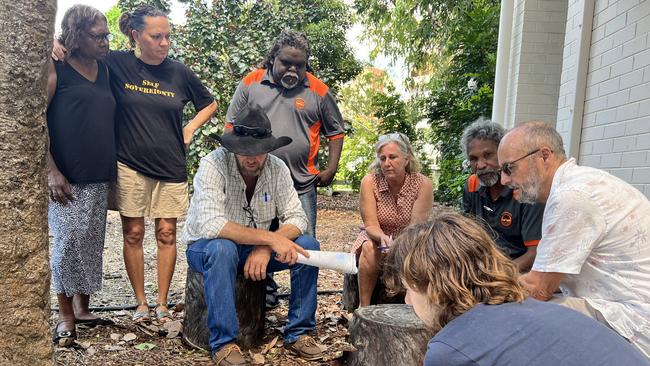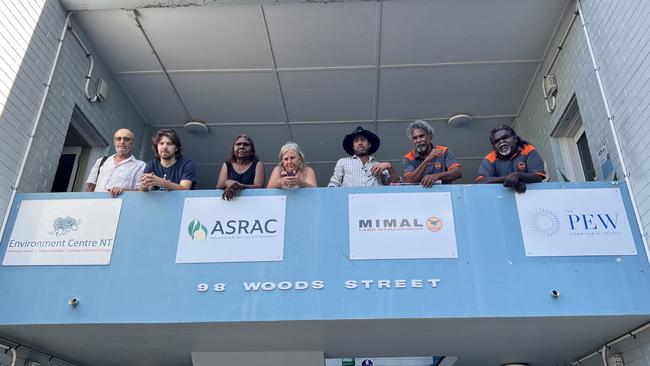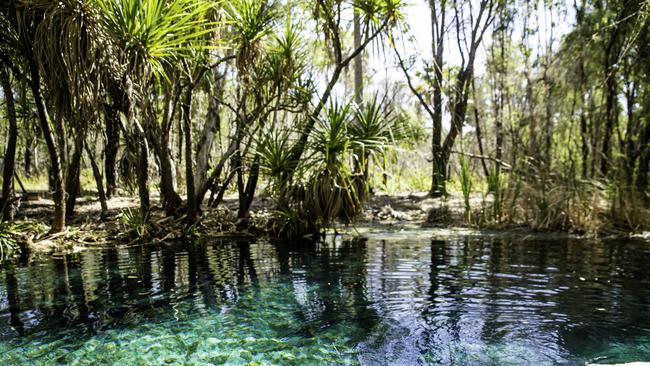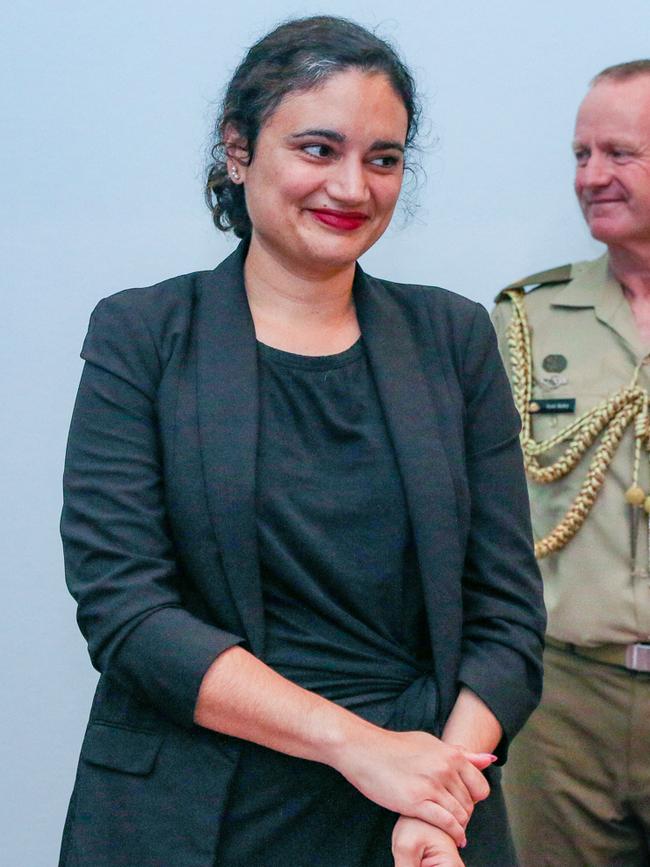Beetaloo Basin water extraction plan concerns Traditional Owners and green groups
Environmentalists and Traditional Owners are pushing for a moratorium on water extraction licences over concerns related to the Beetaloo Basin.
News
Don't miss out on the headlines from News. Followed categories will be added to My News.
Advocates have warned “water mining” in the Beetaloo Basin could reverse the flow of a major river and harm Top End communities.
Environmentalists and Traditional Owners have called for a moratorium on water extraction licences and a delay the deadline for a water allocation plan within the Beetaloo Basin.
A proposed water allocation plan for the Cambrian Limestone Aquifer is expected to be released for public consultation on Monday, with the final draft to be completed by the end of 2022.
Water from the 474,000sq km groundwater basin flows to the Roper River and Mataranka Springs, one of the most popular tourist attractions in Katherine.
Environment Minister Lauren Moss said extensive consultation had gone into the draft water allocation plans to balance the Territory’s need for clean drinking water while supporting industry.
Protect Big Rivers, Nurrdalinji Aboriginal Corporation, Protect Country Alliance, Arid Lands Environment Centre and Environment Centre NT sent a joint letter to Ms Moss and Chief Minister Natasha Fyles on Thursday, in the lead-up to the Australian Water Association’s Water in the Bush Conference.

The letter raised concerns over the level of consultation and called the 2022 deadline “arbitrary” and “risky”.
Nurrdalinji Aboriginal Corporation director and Alawa man Bradley Farrar said he was fighting to stop the Territory’s second largest river, the Roper, from running dry.
“If all the water is gone where will we be?” Mr Farrar asked.
“We’ll be lost without our land, without our water.
“If the water is going, drying out, the whole system is going to be wiped out.”
Protect Big Rivers coordinator Sam Phelan said the water licencing system was “broken” and critical information was “being hidden”.
She said documents obtained via a freedom of information request had shown the government ignored advice about the Roper River.

Ms Phelman said the Director of Water Planning Tim Bond warned water allocations could cause the Roper to dry up, and even flow backwards causing salt water to enter the aquifer.
“The government sat on that and continued issuing water licences,” Ms Phelan said.
“We need to stop, we need to get some decent science, and then we need to get some effective decisions.”
While the Cambrian Limestone Aquifer plans had not yet been made public, Ms Phelan said there was a good indication they would green light “water mining”.
“When we talk about water mining we’re talking about unsustainable development in the Northern Territory,” she said.

“We’ve got pressure from irrigated cotton, we’ve got pressure from mining companies, and now we have pressure from fracking companies.”
The joint letter was also critical about the level of consultation and expert evidence available in the drafting of the water allocation plan.
Ms Phelman said a Strategic Regional Environmental Baseline Assessment was not expected to be complete until April 2023, four months after the water plan’s deadline.
The joint letter said no water advisory committees were appointed to guide the plans.
“It is vital that the best available science inform the development of these plans from the outset, not at some later date,” it said.
It claimed stakeholder engagement for the water allocation plans were replaced with “informal ad hoc mechanisms”, including classifying a ‘Have your say’ website as public consultation.
Ms Moss said there had been “extensive stakeholder engagement” in 2021.

“No other government has done more for water security,” Ms Moss said.
“It is focused on things like ensuring continued access to safe drinking water for all Territorians, and making sure we manage and allocate water responsibly and in a way that supports the community and industry.”
The government said it would respond to the specific claims from the joint letter in due time.
On Friday, Ms Moss released the Draft Territory Water Plan, the first whole-of-government strategy for water security over the next four years.
The draft plan proposed charging for water licences, regular drinking water safety forums and creating a independent Controller of Water Resources.
“This plan ensures that the future use of water is based on science and on sustainability, and that it reflects the insights, expertise and aspirations of as many Territorians as possible,” Ms Moss said.
The Beetaloo Basin has been earmarked as a major gas resources and an economic driver, however development was halted to allow the 2018 Pepper Inquiry to recommend additional safeguards, transparency and oversight requirements for the industry.
More Coverage
Originally published as Beetaloo Basin water extraction plan concerns Traditional Owners and green groups





